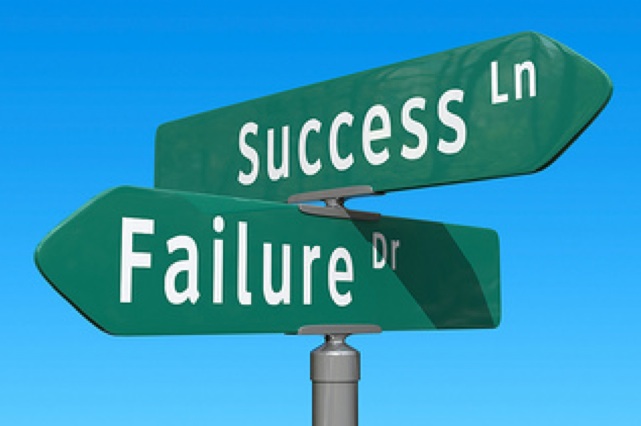You have /5 articles left.
Sign up for a free account or log in.
Katie Shives is a PhD candidate in Microbiology at the University of Colorado. During her free time she writes about microbiology-related topics at microbematters.org, kdshives.com, and on Twitter @KDShives.

In life, failure is inevitable; in graduate school, it is guaranteed. The very nature of a graduate degree puts you into contact with failure on a regular basis, especially if you work in the lab attempting to do or show something that has never been seen before.
Somehow, in the face of this failure we as students are expected to have that roll off our backs and move on to the next task. After a few years in academia I’ve realized that this is a great example of “failing forward,” or learning from failure in a way that makes you a more capable student and scholar. But how do you fail forward? What needs to happen in order to fail forward is a change in your outlook on graduate school from a fixed mindset to a growth mindset. What exactly is a fixed vs. growth mindset, and how do you cultivate it?
A fixed mindset is reflective of someone who sees their abilities as pre-determined and unchangeable, while someone with a growth mindset would see themselves as developing their abilities over time. Someone with a fixed mindset sees their performance as a fixed issue “I’m smart, so I got it right”; or in the case of failure, “I’m stupid, so it’s no use trying to understand this.” When you approach with a growth mindset, failure looks more like “well, I didn’t get this right, so let’s see how I can work on improving before trying again.” It means that you can be more open to constructive criticism, rather than defensive—a trait that will help you in relating to your graduate advisor and committees and in making consistent progress with your work.
The growth mindset in action: Did you take a ton of you time to apply for a grant, only to have it not funded, or not even scored? In this moment it is all too easy to feel like a failure, especially if looking at the situation with a fixed mindset. However, if you are looking at this kind of event from a growth mindset, then you can see it as an opportunity. As a student, this application was not about securing that one grant, but improving the skills that you need to obtain grants for the rest of your career. Get the comments for the application to find out what the reviewers liked about it and build on those strengths so that your next application has a better chance at scoring well and getting funded. No researcher on the planet has a perfect funding record; they all had to work hard to get the skills necessary to craft a successful grant application.
With many grant section pay lines at or below 10% right now, there is a lot of failure taking place in the academic community. Add to this the rejection of manuscripts submitted to professional journals and it’s easy to feel like you’re not making any progress and none of your efforts are paying off. If you can’t develop a growth mindset in the face of these many continued rejections, it will be extremely difficult to make any progress or even persist in the academic career track. It is easy to get stuck thinking that you are fixed in how much you can understand and accomplish, and if that is the case then each failure and setback will only serve to make you feel unfit for graduate school (impostor syndrome, anyone?). However, if you can learn to see failures and roadblocks as opportunities for personal growth and development, then you can look forward to reaching ever-higher levels of achievement as you keep working toward your goals, both within and outside of graduate school.
[Image from Flickr user Chris Potter of StockMonkeys.com, used under Creative Commons licensing]








